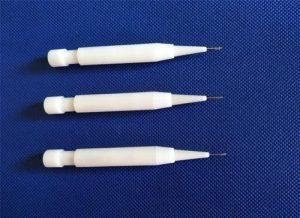Inflammation of the lungs, and a potential hormone imbalance are among the reasons why a person might lose hair after smoking weed. THC has also been shown to inhibit hair follicle growth. In addition to these effects, the smoke from weed can also suppress collagen production, slowing the progression of severe alopecia.
THC inhibits hair follicle growth
Smoking weed can result in hair loss in some people. The chemical THC inhibits hair follicle growth. While the chemical isn’t known to cause loss of hair in every person, some studies indicate that it can cause the condition in some individuals. There’s no one answer as to what causes hair loss, but it’s possible that THC is one of the main reasons.
The psychoactive component in marijuana, THC, interferes with hair follicle growth by binding to cannabinoid receptors in the body. It also affects the distribution of vital proteins in the hair, which leads to thinning.
Research conducted by the University of Debrecen has shown that THC inhibits hair follicles’ ability to grow and regrow hair. It also increases the concentration of cortisol, a hormone that can be linked to hair loss.
Hormonal imbalance
Using marijuana for long periods of time can cause hormonal imbalances that result in hair loss. In particular, marijuana increases the body’s production of cortisol, a stress hormone. High levels of cortisol can promote rapid thinning of hair and Telogen Effluvium. In addition, marijuana users often experience reduced libido and acne. It also increases levels of carcinogens, which can slow down the growth of hair follicle cells.
Although marijuana use can cause hair loss, it may help stabilize your hormones, and may even help prevent symptoms of hormonal imbalance in the first place. The chemical tetrahydrocannabinol in marijuana can increase the amount of cortisol produced by the body when it is stressed. This, in turn, may contribute to telogen effluvium.
Inflammation of the lungs
Several studies have reported an increased risk of pulmonary inflammation in marijuana smokers. These results are consistent with a possible causal relationship between marijuana smoking and pulmonary inflammation. Molecular analysis has found that marijuana is likely to cause an increase in neutrophils, which are responsible for inflammation of the airways.
Inflammation of the lungs is a common complication of smoking tobacco, but it can be easily prevented by changing the way you smoke. For example, a marijuana smoker may smoke five joints a day, which is about the equivalent of smoking 26 cigarettes a day.
However, marijuana smokers are at higher risk of bullous lung disease compared to cigarette smokers. This is why physicians need to make sure their patients are properly educated about the potential dangers of smoking weed.
Inhibition of hair follicle growth
When you smoke weed, the chemicals THC and CBD attach to hair follicles, inhibiting growth and development. Over time, the follicles gradually shrink and detach from the scalp’s blood supply. The nutrients that are needed for healthy hair growth instead end up in the blood and never make it to the scalp. The body’s circulation is crucial to maintaining healthy hair, but smoking marijuana interferes with it by releasing thousands of harmful chemicals into the blood stream. These toxic chemicals clog blood vessels and prevent proper blood flow to hair follicles.
It is not entirely clear why smoking weed is detrimental to hair growth, but a recent study found that it can contribute to hair loss in some people. Researchers discovered that smoking marijuana can increase the amount of cortisol in the body, a hormone that affects hair follicle function. The increase in cortisol levels causes premature hair loss known as telogen effluvium. Additionally, a regular marijuana user’s diet is likely deficient in essential vitamins and minerals, which can also impact hair health.



